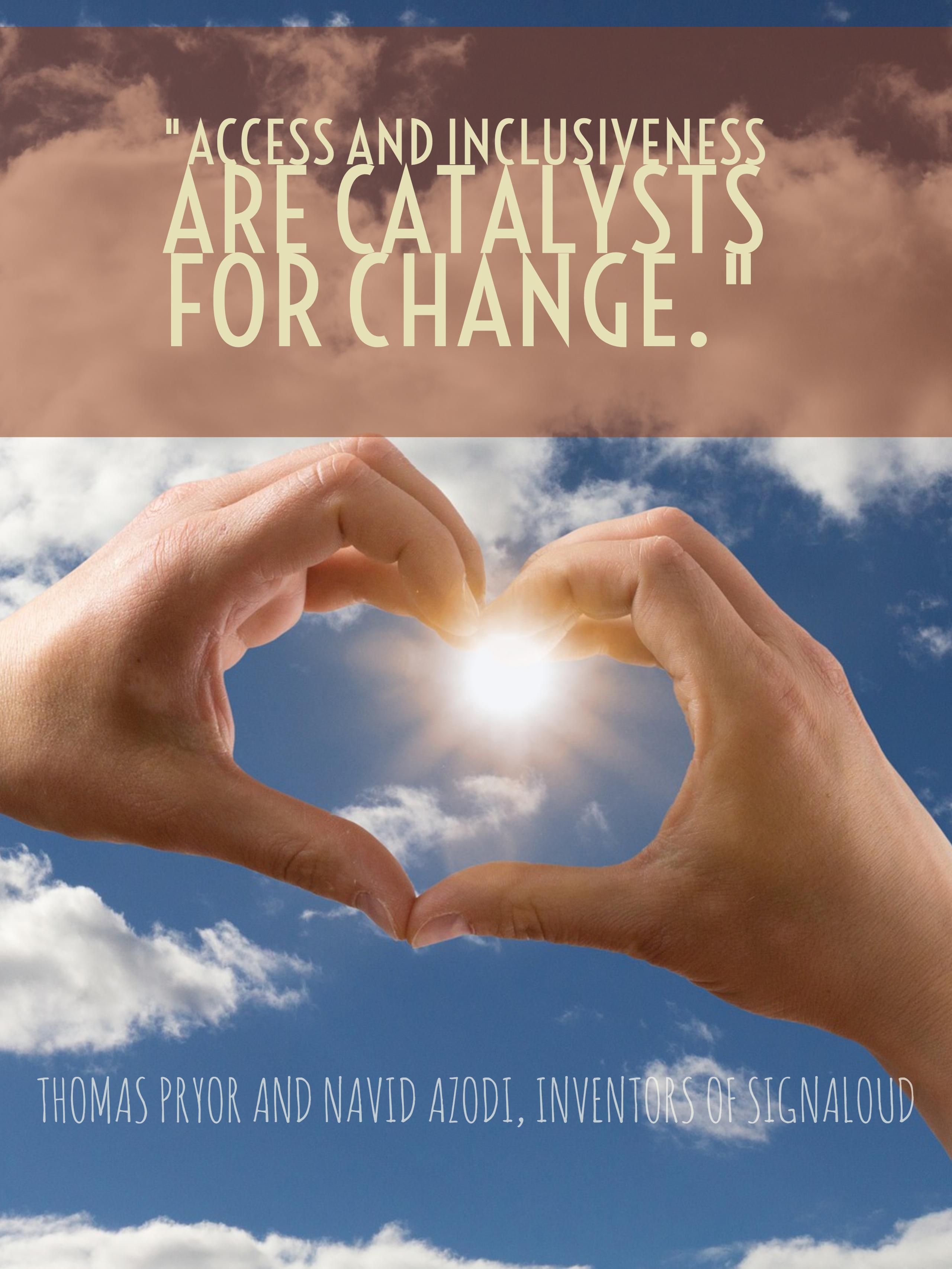How Technology Can Allow for Greater Human Connection?
 Watch and Discuss Face to Face
Watch and Discuss Face to Face
Technology and Human Rights
"Access to communication is a fundamental human right. Every person deserves to be part of the global community. However those who are deaf or mute, communicate differently than everyone else. They primarily use sign language while the rest of the community communicates verbally. This puts them at a disadvantage." Navid Azodi

This video is an introduction to how technology can help to further connect us and bring us closer together. Just as Pope Francis says, "Good communication helps us to grow closer, to know one another better, and ultimately, to grow in unity."
As a class, you are going to learn more about this amazing project by Thomas Pryor and Navid Azodi. Then afterwards take part in a discussion.
After you watch the video, explore the interactive e-book which explains more about this amazing project.
 Video
Video
"SignAloud: Gloves that Transliterate Sign Language into Text and Speech"
Thomas Pryor and Navid Azodi of the University of Washington are the $10,000 Lemelson-MIT “Use it!” Undergraduate Winners for their invention SignAloud, gloves that transliterate sign language into text and speech.
Source: Lemelson MIT, 2016, "SignAloud: Gloves that Transliterate Sign Language into Text and Speech" Retrieved from https://www.youtube.com/watch?v=l01sdzJHCCM
 Sign Aloud Interactive e-book
Sign Aloud Interactive e-book
Read the articles and watch the videos. As you explore the content in the book, jot down your reactions to the following questions. (If you are on a laptop, consider opening a second tab for Office 365 and jot note your reactions in Word Document).
- Why did the students create the gloves?
- How do the gloves revolutionize or improve communication between the deaf and mute and the hearing world?
- The inventors, Thomas Pryor and Navid Azodi say that "access and inclusiveness catalysts for change". What do they mean?
- Access and communication are a fundamental human right. How do these gloves improve the rights of the deaf and mute community with the rest of the hearing world?
- What if these gloves were made low cost and easy to access, how could they change opportunities for deaf and mute people?
In the next assignment you will be sharing your reflections to these questions via Flipgrid.
